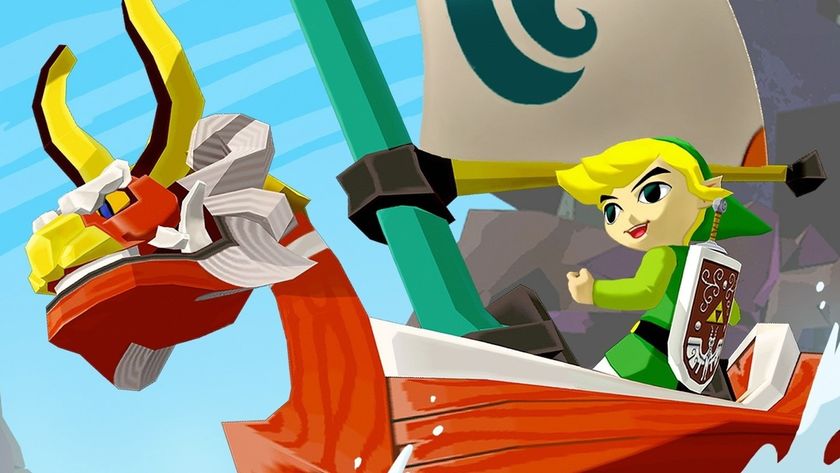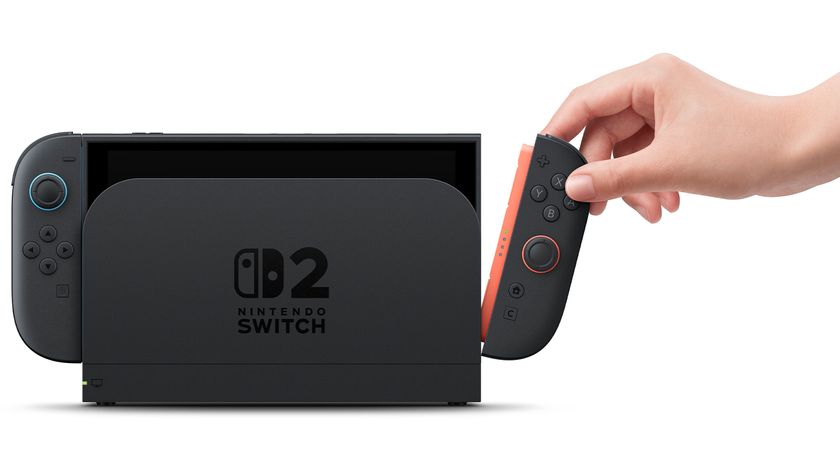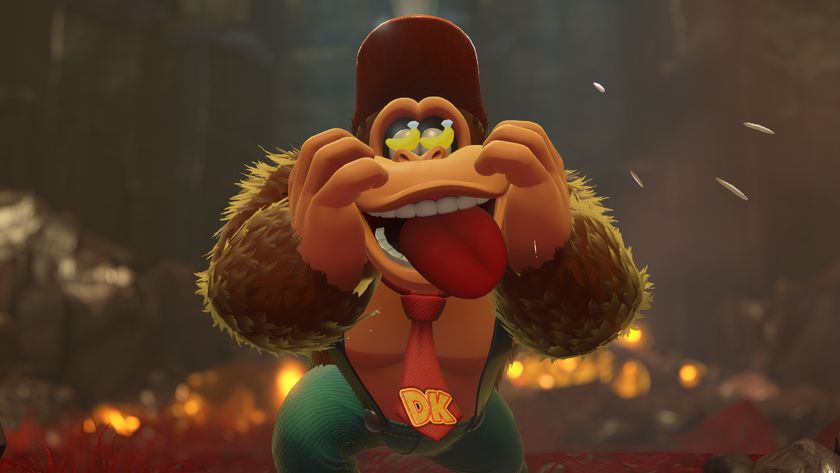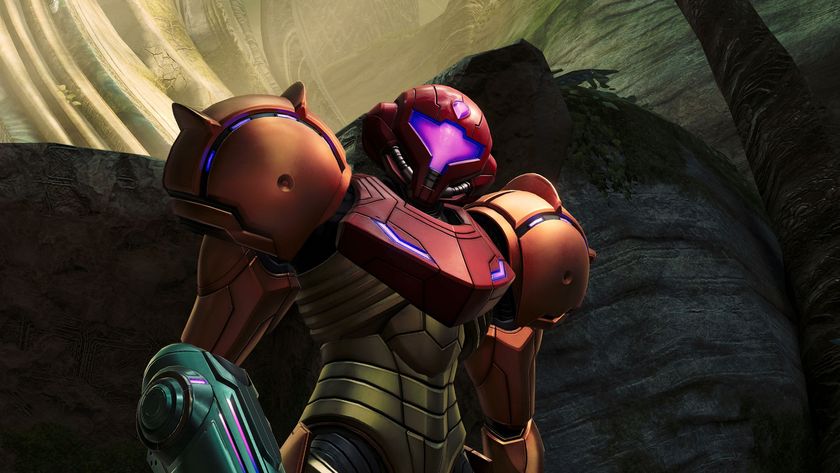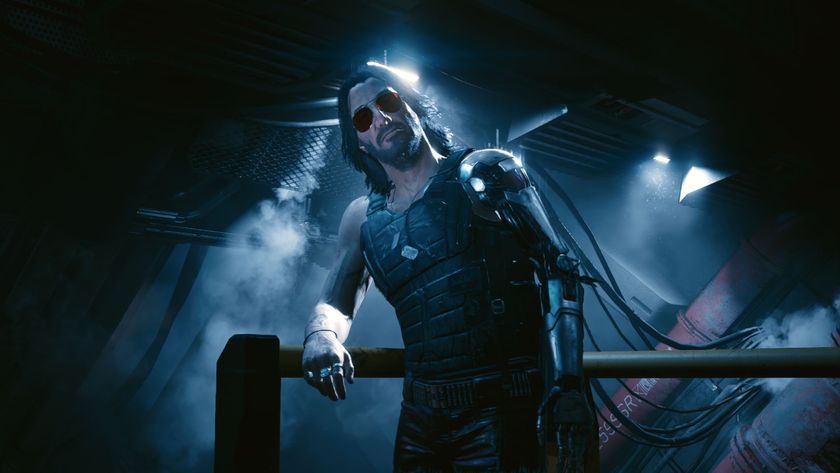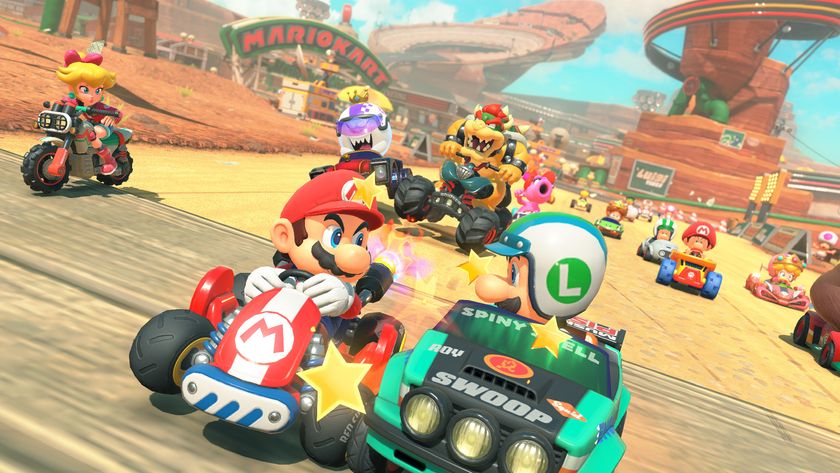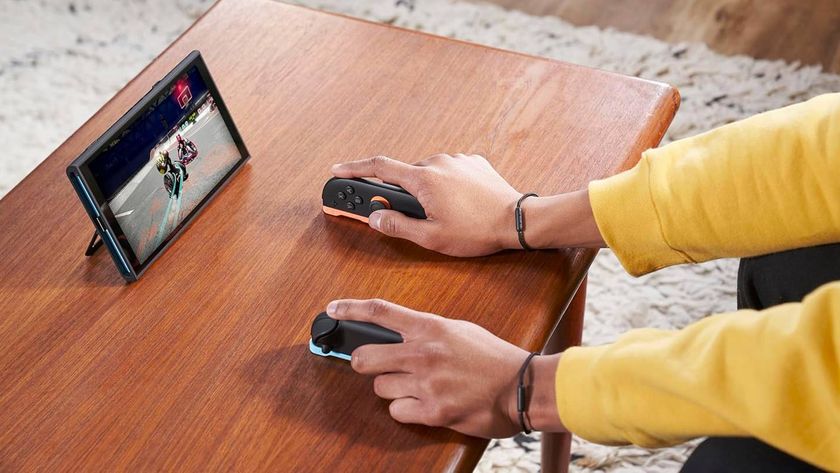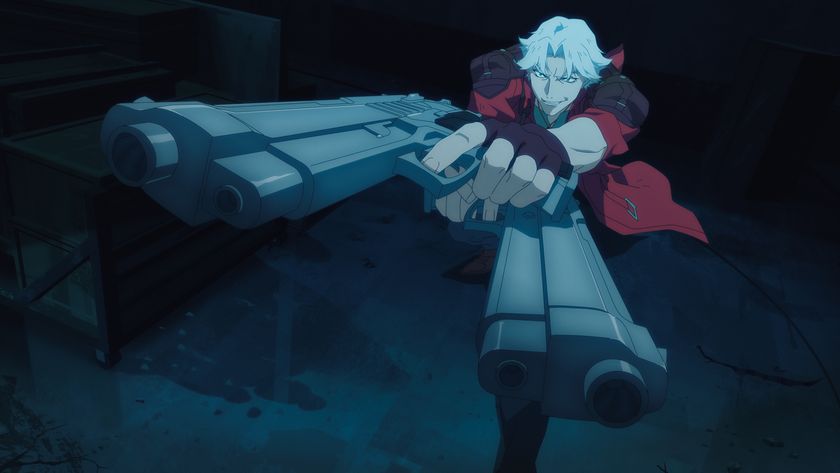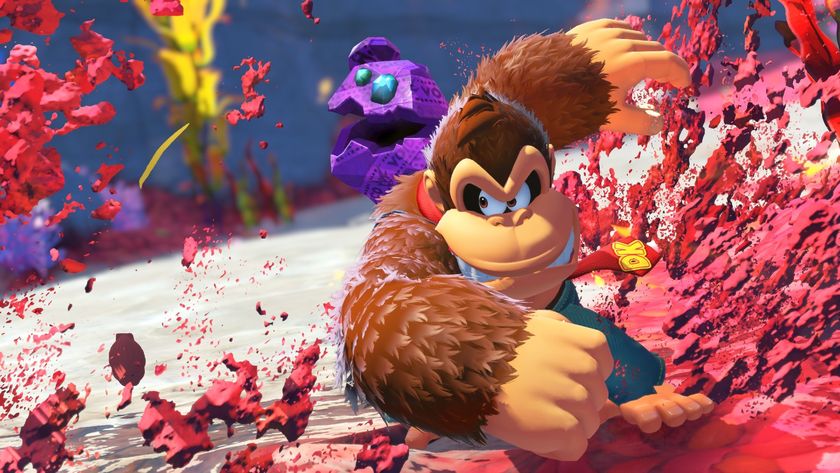Gaming's greatest unexplained super powers
The super powers we allow our game characters to have so that our games are more interesting
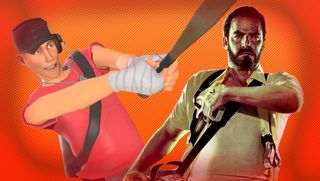
They're totally super powers
And today, we pay homage to these abilities - the super powers of gaming that represent the sacrifice we make every time we boot up a Call of Duty game: the sacrifice of realism for the sake of gameplay.
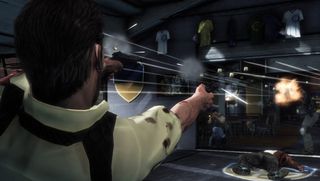
Slow motion
Examples: Max Payne, Dead to Rights, Need for Speed: Most Wanted, Sleeping Dogs
Being able to slow down time randomly has been given several names. Sometimes it's called "Adrenaline," other times it's "Shoot Dodging," but no matter what name it's assigned, we all know what it is: that thing everyone decided was awesome after The Matrix came out.

Never needing to eat, sleep, pee, or fulfill any other mortal necessities
Examples: Everything except The Sims and The Ship.
Link doesn't poop once during his entire journey to save Hyrule from Gannon. Not once. Altair? He doesn't, either. Though some games give the option to eat, drink, sleep, or use the facilities, it's hardly ever actually needed, acting as a proxy to heal lost life or save instead of doing what it actually does: keep humans alive.
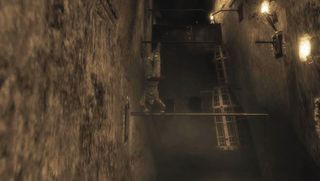
Swinging on a pole indefinitely
Examples: Prince of Persia, Enslaved, Tomb Raider
Acrobatic platformers were all the rage last-generation, with characters like The Prince and Lara Croft jumping from pole to platform to explore ancient crypts. Both games also allow their heroes to swing on poles... indefinitely. Just spinning and spinning and spinning...
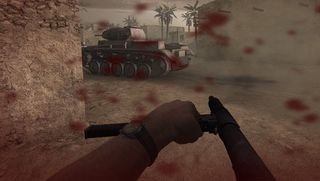
Regenerating health
Examples: Nearly every game after 1999
This one sort of makes sense, at its core. If you're beat up, you can take a deep breath, relax for a few seconds, and head back into the battle. But when this concept is found in a shooter, where your character regularly gets shot in the face, our suspension of disbelief is tested - especially when the bullet-holes are shown (Max Payne, we're looking at you).
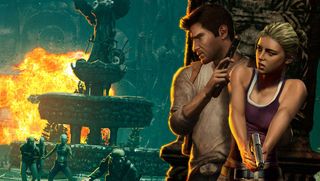
Indestructible, immovable costumes and hair
Examples: Most adventure games, Nathan Drake's half-tucked shirt
Some games show the character's outfits changing throughout the game. Others, though, treat the character models as untouchable effigies, with perfect hair and costumes that won't budge no matter how many bullets they soak, punches they take, or leaps they make.
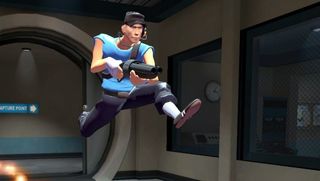
Double jumping
Examples: Team Fortress 2, Devil May Cry, Super Smash Bros.
Seriously, this is one you can go outside and try. Jump, and then without touching the ground or anything at all, jump again. You can't do it. It's not a thing. And yet, despite that, a huge amount of retro platformers included the ability to jump and then to also jump again. Modern games do this less, and usually explain it, but sometimes they'll still throw it in without any justification out of what we assume is development habit, giving random characters the super human ability to jump whilst jumping.
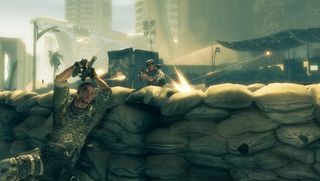
Seeing around corners without looking
Examples: All cover shooters, most stealth games that don't give the character secret agent tools
Nearly every third-person game gives the player the ability to see stuff that the in-game character's can't. Once cover is added in, this feature usefulness is improved tenfold, as the character is able to act on what the player can see. In stealth games the character can react to an oncoming guard that they couldn't possibly see, and in shooters it allows the player to blind-fire at enemies, taking them down without looking around the corner.
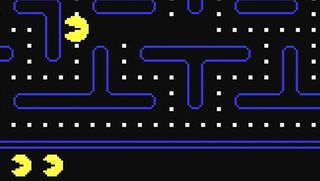
Respawning after death
Examples: Nearly every game ever
Essentially any game that doesn't have perma-death or explain why characters are able to come back to life after dying has granted their characters with one of the most powerful superpowers of all: immortality. Dying and coming back to life - with the knowledge of what killed you - is absurdly powerful, and nearly every game ever made does it.
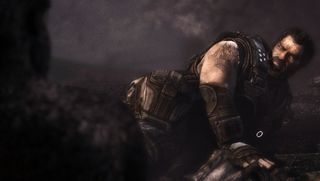
The ability to revive dying friends by tapping their shoulder
Examples: Gears of War, Left 4 Dead
Besides being able to come back to life over and over again, the ability to resurrect allies in squad-based games is another feat of super heroism that has been appearing in more and more games. We'll give magical syringes a pass, since we can assume that there's some sort of medical voodoo that allows a needle to heal bullet wounds, but when all it takes is "being helped up" or a slap on the shoulder, to bring someone back from the brink of death it's a little much.
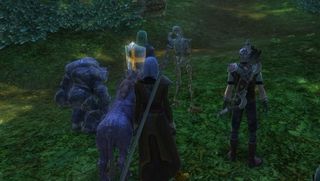
Being completely invisible to enemies more than X feet away
Examples: Every MMORPG
The idea of "aggro" in MMORPGs sort of makes sense once the battle starts - of course enemies will focus on specific players over others. But the act of getting aggro has always meant walking SUPER close to enemies, meaning there are two options: every enemy has terrible vision, or the players are invisible, and don't become visible until they're right up next to the enemy. Neither makes that much sense, but we think the second is more likely.

Dual-wielding shotguns without breaking arms
Examples: Call of Duty: Modern Warfare 2, Marathon 2, Call of Juarez, Timesplitters
Firing a shotgun without holding it correctly could shatter your arms, or cause enough recoil to break your hand or nose. In case you're wondering, holding a shotgun with one hand isn't correct. Despite this, characters often hold two powerful guns and can not only fire them accurately without breaking their bones, but somehow reload them. Maybe they're holding the shells in their belly buttons.

Not shattering knuckles when using melee on objects/people
Examples: Super Mario Bros., most games with melee
Ever punch someone? It hurts. Bad. And yet in many games, characters punch out dozens of people without breaking a sweat (or a finger). What's more, Mario can punch stone blocks all day long without wounding himself. Talk about a super power - he's essentially Hellboy with that fist.
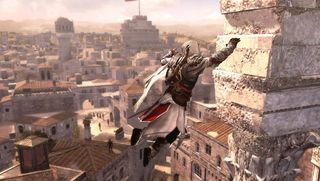
Super finger strength
Examples: Assassin's Creed, Prince of Persia, Infamous, most games involving climbing
Holding on to a pull-up bar for a long time is really, really difficult. It takes massive upper-body strength, and is quite a workout in and of itself. Holding onto something by just your fingertips? Well, it's essentially impossible to do it like they do in video games, meaning they must have some sort of superhuman finger powers.
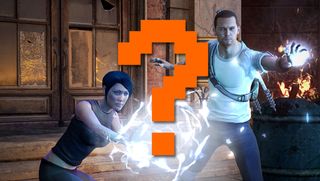
It's a bird! It's a plane!
What about you? What are your favorite super powers in gaming?
And if you're interested in more super-powered lists, check out our list of the best super hero games of all time and the top 7 games that deserve comic book spin-offs.

Hollander Cooper was the Lead Features Editor of 12DOVE between 2011 and 2014. After that lengthy stint managing GR's editorial calendar he moved behind the curtain and into the video game industry itself, working as social media manager for EA and as a communications lead at Riot Games. Hollander is currently stationed at Apple as an organic social lead for the App Store and Apple Arcade.
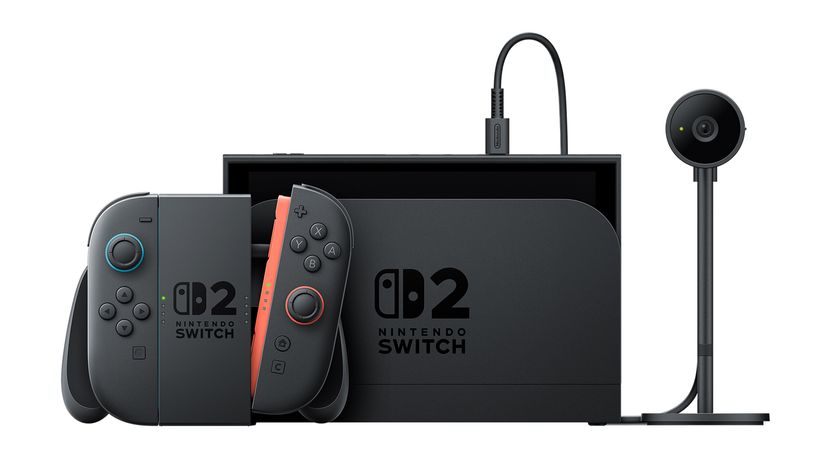
Nintendo says Switch 2's Discord-like GameChat is a "defining feature" of the new console that was partially shaped by Zelda: Breath of the Wild and a cult puzzle game

Switch 2's producer made requests "in great detail and great amounts" to make sure the eShop is as good as the Wii Shop Channel

Nintendo says Switch 2's Discord-like GameChat is a "defining feature" of the new console that was partially shaped by Zelda: Breath of the Wild and a cult puzzle game

Switch 2's producer made requests "in great detail and great amounts" to make sure the eShop is as good as the Wii Shop Channel
